![]() 2 0 2 0 L U N C H & L E A R N S E R I E S
2 0 2 0 L U N C H & L E A R N S E R I E S ![]()
This summer our 2020 VU-Institute for Software Integrated Systems interns will have the opportunity to "lunch & learn" with a handful of graduate (and graduated) students and researchers from our department. The experience will be an intimate and informal one, providing the time for important networking, learning, and career building insight each student can carry with them into future opportunities.
2020 SCHEDULE
Wednesday, June 10: Shreyas Ramakrishna & Michael Wilbur (Recording found here)
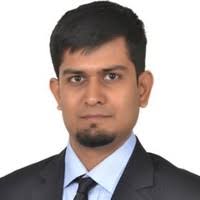 | Shreyas Ramakrishna is a 4th year PhD student in the Department of Electrical Engineering and Computer Science and is working as a research assistant with Prof. Abhishek Dubey at the Institute for Software Integrated Systems. He received his M.S. degree in Electrical Engineering from Technical University Kaiserslautern (Germany) in June 2015 and completed his undergraduate studies in Electrical engineering from Visvesvaraya Technological University, India in 2012. He is currently working on the Assured Autonomy project. |
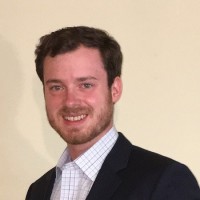 | Michael Wilbur is a graduate student in the Department of Electrical Engineering and Computer Science at Vanderbilt University and works as a research assistant at VU-Institute for Software Integrated Systems. He received his M.S. degree in Structural Engineering from Northwestern University in December 2018 and his Bachelor’s degree in Civil Engineering from The University of Notre Dame in 2012. His research is on high integrity and secure spatio-temporal decision procedures and software for urban systems. He works on the High-dimensional Data-driven Energy Optimization for Multi-Modal Transit Agencies (HD-EMMA) project where he designed & implemented a cloud-centric data storage architecture for real-time inference and training of machine learning models for energy prediction. |
Thursday, June 11: Diego Manzanas Lopez (Recording found here)
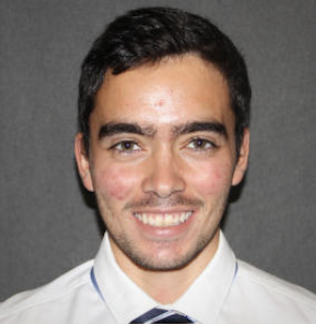 | Diego Manzanas Lopez is an Electrical Engineering (EE) PhD student at Vanderbilt University. Diego joined the VeriVITAL research group in Fall 2017 under Dr. Taylor Johnson's direction, where his work focuses primarily on the development of verification techniques and software tools for Cyber-Physical Systems (CPS) with Learning-Enabled Components (LEC). Diego has been part of the DARPA Assured Autonomy project for the last two years, wherein he has been working with unmanned underwater vehicles (simulation), from learning the models to safety verification. He has also been involved in the development of the Neural Network Verification (NNV) toolbox which aims to verify, via reachability analysis, multiple neural network architectures as well as control systems where neural network controllers are present. Lastly, he also enjoys working with autonomous drones and cars, and has been a Vanderbilt team member at the last two F1/10 competitions (2019 CPS-IoT Week and 2019 Embedded Systems week) and at the 2019 NSF CPS Challenge (drone). |
Thursday, June 25: Patrick Musau (Pizza Lecture)
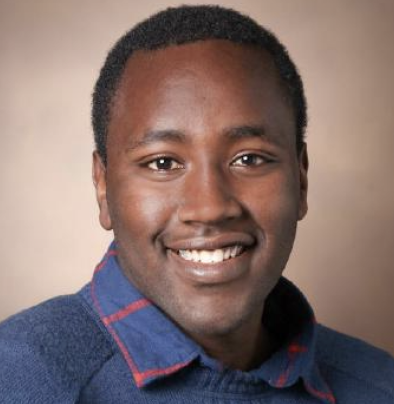 | Patrick Musau is an Electrical Engineering (EE) PhD student at Vanderbilt University. He joined the VeriVITAL research group in the Summer of 2017 under Dr. Taylor T. Johnson. Patrick's research work focuses primarily in the use of verification techniques and software tools to foster the creation of intelligent autonomous Cyber-Physical Systems (CPS) with Learning-Enabled Components (LEC). Patrick has been part of the DARPA Assured Autonomy project for the last two years, where he has been working with unmanned underwater vehicles (in simulation), and an autonomous vehicle platform named the F1Tenth (simulation and hardware). He has also been involved in the development of the Neural Network Verification (NNV) toolbox that makes use of reachability analysis techniques to reason about the behavior of a variety of neural network architectures. Patrick, enjoys working with autonomous drones and cars, and over the last couple of years, he has been a member of two Vanderbilt teams that have competed in the F1/10 autonomous racing competitions (2019 CPS-IoT Week and 2019 Embedded Systems week) and at the 2019 NSF CPS Drone Challenge. |
Thursday, July 2: Will Barbour & George Gunter (Recording found here)
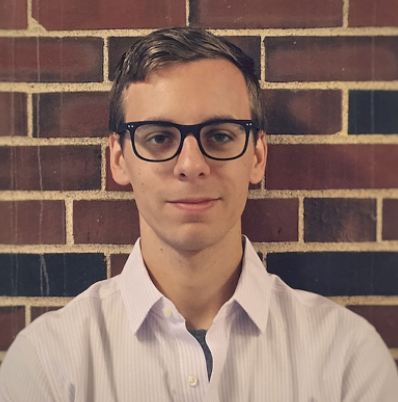 | Dr. William Barbour is research scientist at VU-Institute for Software Integrated Systems. His studies have been interdisciplinary, with a Ph.D. in civil engineering, an M.S. degree in sustainable and resilient infrastructure systems, and a B.S. in Biosystems Engineering. William previously worked at Oak Ridge National Laboratory and CSX Transportation. He has received funding support from the Roadway Safety Institute, Federal Highway Administration, and Eno Center for Transportation. William was awarded the Top Doctoral Fellow from the Eisenhower Transportation Fellowship Program in 2020 and Student of the Year from the Roadway Safety Institute in 2017. His career and research interests focus on the application of novel and advanced computational techniques to transportation systems engineering. He has applied these interests in a variety of transportation domains: freight railroad operations, highway traffic, urban mobility, and connected and autonomous vehicle dynamics. |
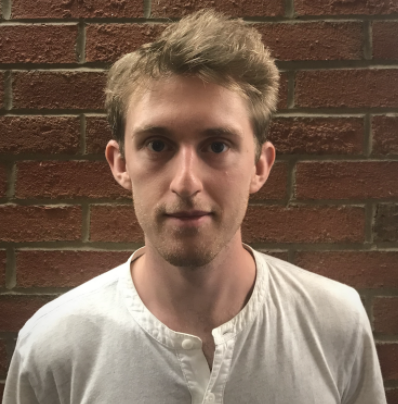 | George Gunter is a PhD student in Civil Engineering and the Institute for Software Integrated Systems at Vanderbilt University. He earned his B.S. from the University of Illinois at Urbana Champaign. His research interests are broadly in applications of cyber-physical systems to civil infrastructure, specializing in smart and connected transportations systems with a focus on traffic modeling and control. |
Thursday, July 9: Neelanjana Pal (Recording found here)
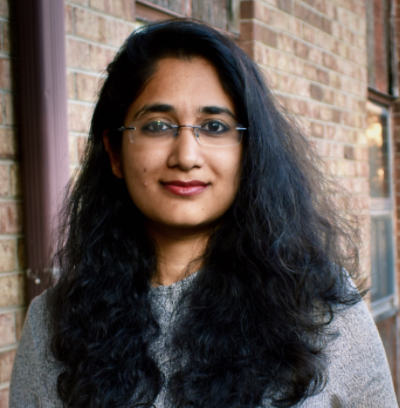 | Neelanjana Pal is currently pursuing her PhD in Electrical Engineering at Vanderbilt University, USA. She is a graduate research assistant in the veriVITAL lab headed by Dr. Taylor T Johnson, at the Institute for Software Integrated Systems since 2019, which focuses on safe and verifiable AI systems. Her primary research interest is in Automated Verification of Neural Networks using specialized software platforms. Currently, she is working on enhancement of a Neural Network Verification Tool, called NNV developed by the veriVITAL Lab. Her work involves studying the effect of input image perturbations on trained Neural Network Classifiers and checking the robustness of the same using Formal Methods. She completed her undergraduate in Electrical Engineering from Jadavpur University, India in the year 2015. Following graduation she joined Rockwell Automation India Pvt. Ltd and spent 2 years as a Project Engineer. |
Wednesday, July 16: Ayana Wild (Recording found here)
 | Ayana Wild is a Ph.D. student in Computer Science at Vanderbilt University. Previously, Ayana received a bachelor’s degree from Tennessee State University in Computer Science and a bachelor’s degree from Tennessee State University in Mathematics. Ayana joined The Verification and Validation for Intelligent and Trustworthy Autonomy Laboratory (VeriVITAL) at Vanderbilt in the Summer of 2017 which is led by Dr. Taylor T. Johnson. Ayana’s research has mainly focused on finding ways of engaging high school and undergraduate students in computer science through connecting programming and extracurricular or outside of school interests such as art, dance, music, and games. |
Thursday, July 30: Brian Broll (Pizza Lecture)
(Slides found here)
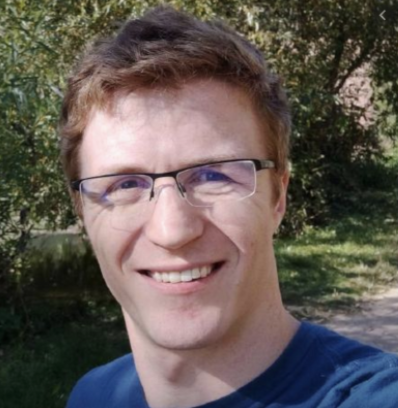 | Dr. Brian Broll is currently an AI Resident at Microsoft working on integrating rule-based AI and imitation learning to leverage their complementary strengths in game AI settings. The goal is to create an agent which leverages the expressiveness of imitation learning to get more human-like behavior while preserving the predictable behavior guarantees afforded by rule-based approaches. Brian finished his PhD at Vanderbilt University in C.S. (specifically Software and Systems Engineering). His dissertation research focused on making distributed computing accessible to kids leveraging blocks-based programming environment. The implementation of this work, NetsBlox, extends Snap! (the educational visual programming language developed at Berkeley) providing networking capabilities including messaging and access to real world data sources. Brian is also interested in artificial intelligence, machine learning, and making techniques in these areas more accessible for those outside of the particular fields. Outside of work, he enjoys rock climbing, coaching wrestling, playing video games, and hanging out with his wife! |